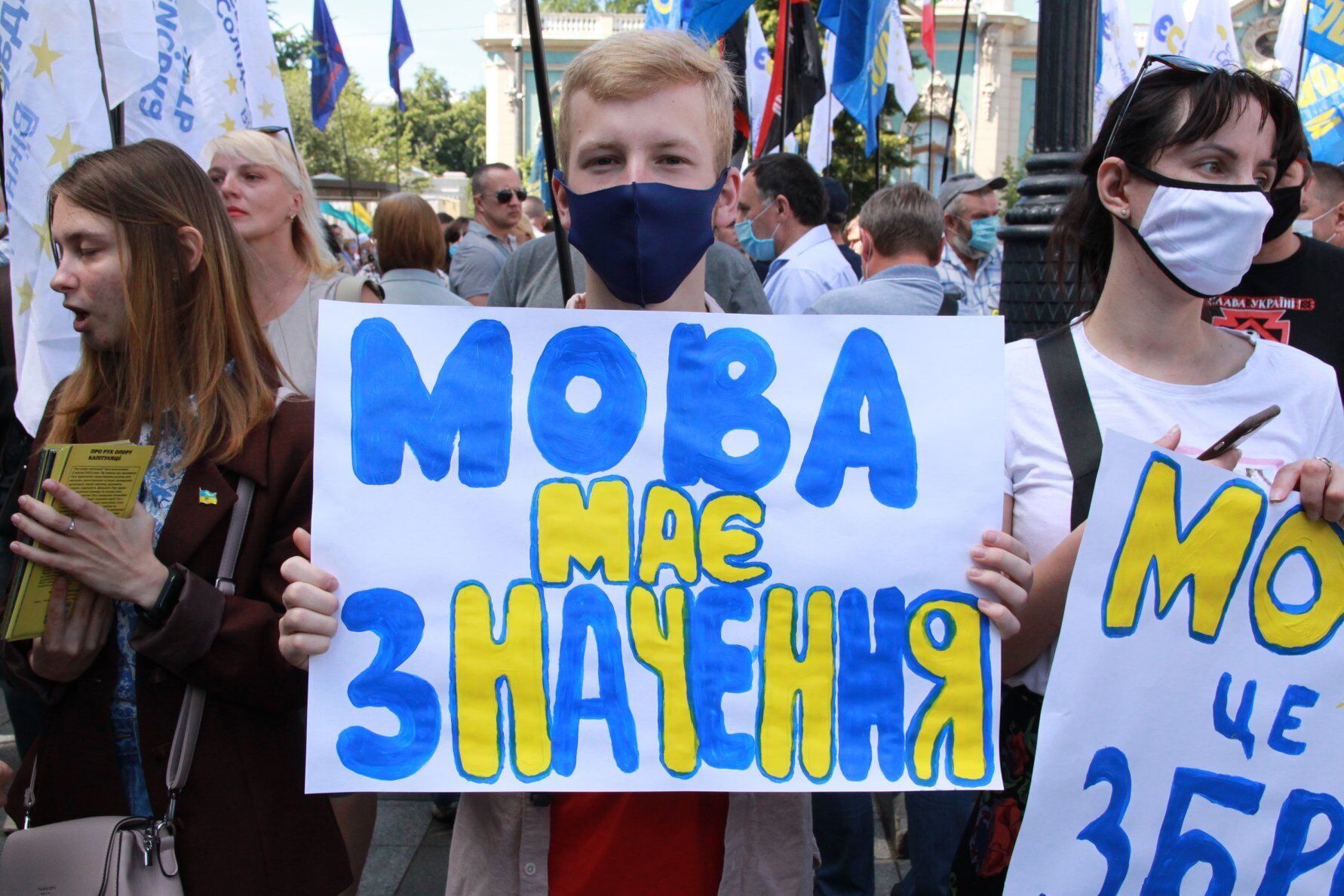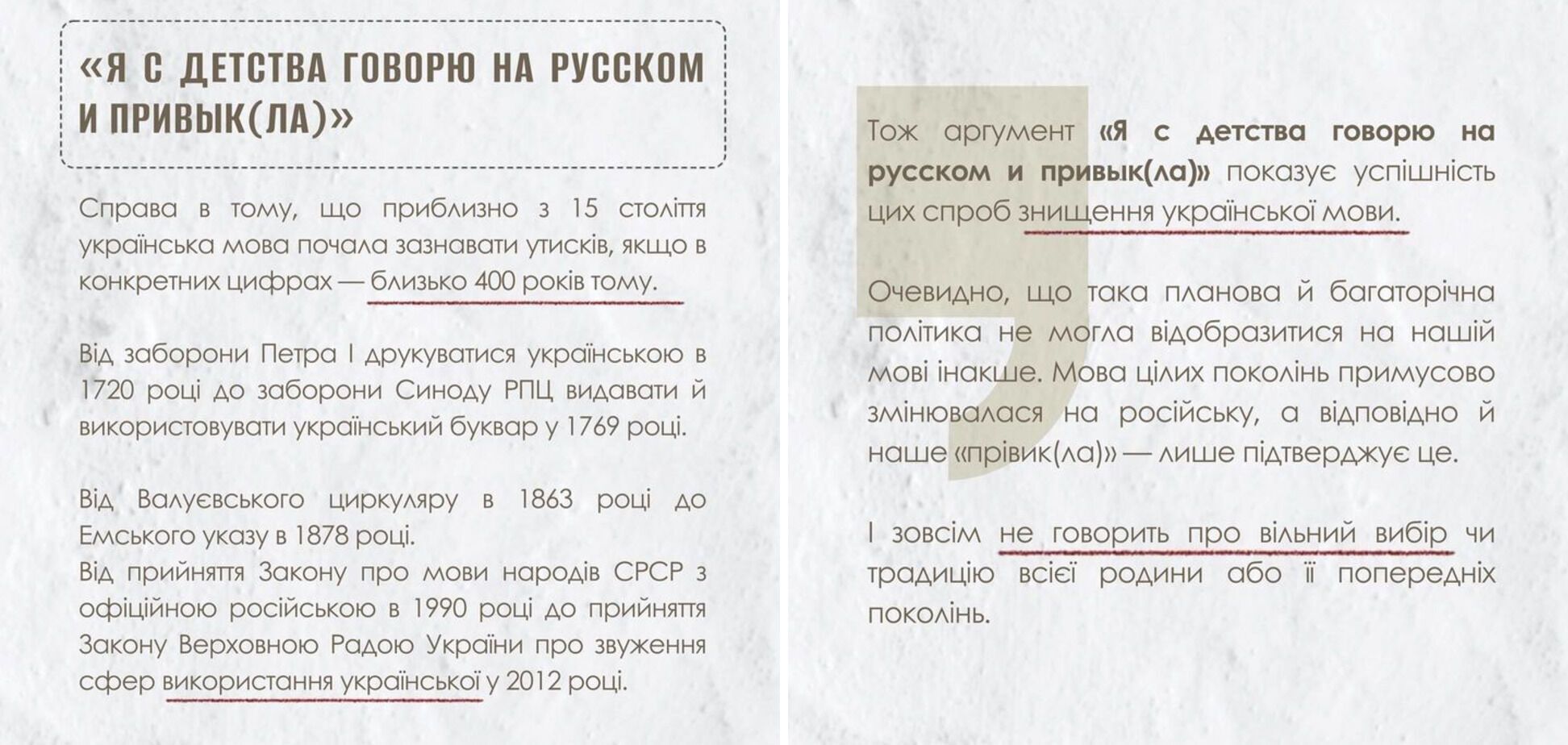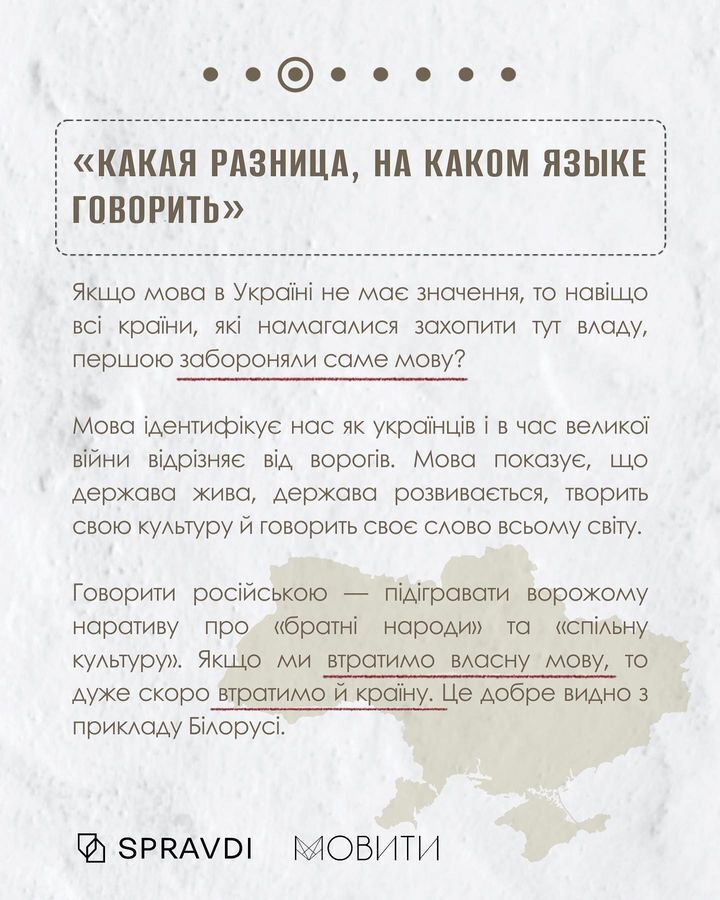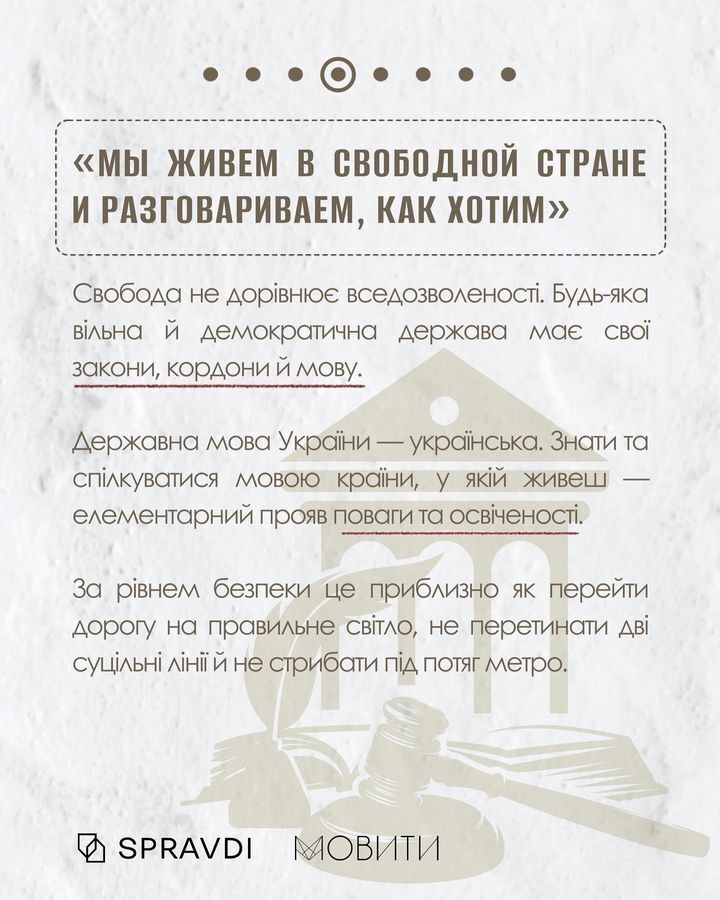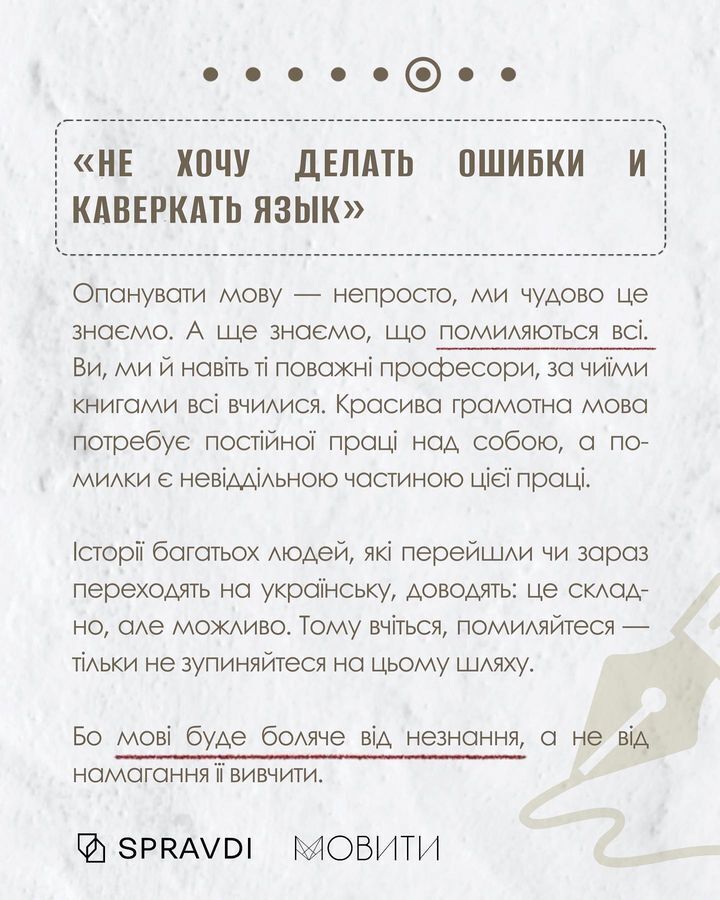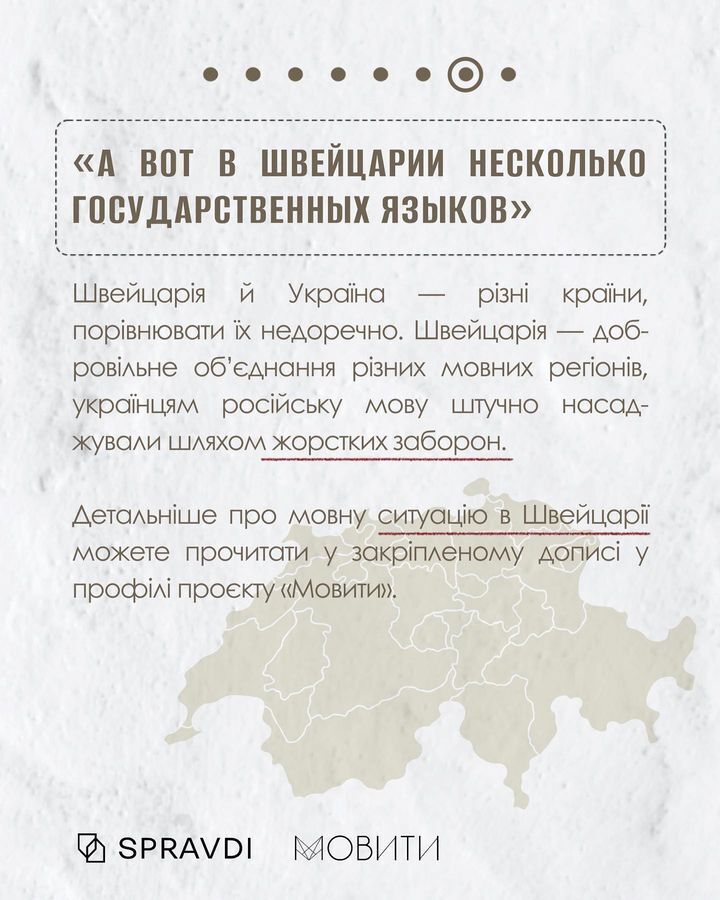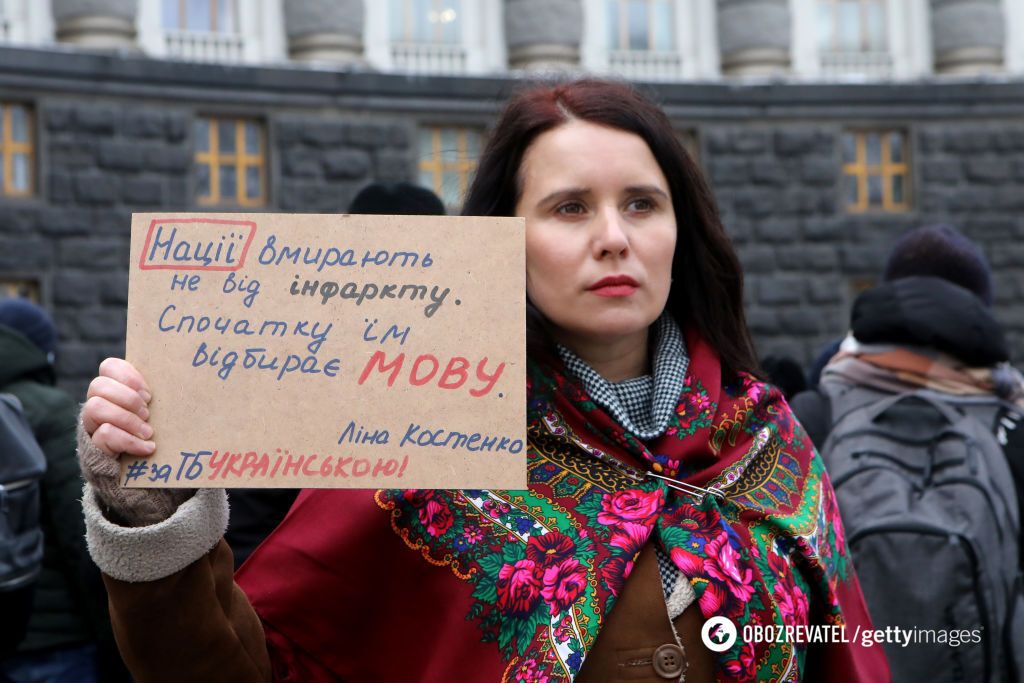Society
"I have been speaking Russian since childhood". How to respond to people who do not want to switch to Ukrainian
"I've been speaking Russian since childhood," "We live in a free country, I speak as I please," and many other clichéd phrases of Russian propaganda are uttered by Ukrainians who are fundamentally unwilling to speak Ukrainian. At such moments, I would like to make an argument in favor of the state language, but for some reason, none comes to mind. So, first of all, you should stay calm and not "rush with your fists" at the interlocutor.
Quite often, historical facts are the best way to prove a person right, but even without knowledge of history, you can at least try to convince a Russian-speaking person to choose the language. The "Movyty" language project explains what kind of arguments can work.
"I've been speaking Russian since childhood / I'm used to it"
For nearly 400 years, the Ukrainian language has been subjected to constant oppression by Russia.
"The argument "I've been speaking Russian since childhood and I'm used to it" shows the success of these attempts to destroy the Ukrainian language. Obviously, such a planned and long-term policy could not have affected our language in any other way. The language of entire generations has been forcibly changed to Russian, and, accordingly, our "used to" only confirms this. And it does not speak at all about the free choice or tradition of the whole family or its previous generations," "Movyty" explained.
"What difference does it make what language?"
The first thing post-Soviet countries did after the collapse of the USSR was to ban Russian.
"The language identifies us as Ukrainians and distinguishes us from our enemies in times of great war. The language shows that the state is alive, the state is developing, creating its own culture and speaking its word to the whole world. If we lose our language, we will soon lose our country. This is clearly seen in the example of Belarus," the project continued.
"We live in a free country and speak as we wish"
"Freedom does not equal permissiveness. Any free and democratic state has its own laws, borders, and language," "Movyty" explained how to respond to one of the most common phrases among the Russian-speaking population.
We should not forget that the state language is Ukrainian, so it should be known and respected. However, the Law of Ukraine "On Ensuring the Functioning of Ukrainian as the State Language" does not prohibit the use of Russian in private life.
"I don't want to make mistakes and 'mess' the language"
"It's not easy to master a language, and we know it. We also know that everyone makes mistakes. The stories of many people who have switched or are currently switching to Ukrainian prove that it is difficult, but possible. So learn, make mistakes - just don't stop along the way," the project writes.
"Switzerland has several official languages"
"Movyty" notes that Switzerland is a voluntary association of different linguistic regions, and that Russian was artificially imposed on Ukrainians through strict bans. In particular, if one wants to compare our country with multilingual countries, it is more appropriate to do so with Belarus. Russian has also been forcibly imposed there for many years.
For nearly four centuries, Ukraine has been oppressed by Russia, starting with Peter the Great's ban on printing books in Ukrainian in 1720. Nine years later, it became taboo to have a primer at home, followed by the Valuev Circular in 1863 and the Ems Decree in 1876. Both of these documents prohibited writing, printing, and teaching Ukrainian.
"Movyty" notes that the language has also been subject to oppression since independence. In 2012, a law was passed that narrowed the scope of Ukrainian usage. Its consequences are still evident today.
Recently, a scandalous scene was created in the New Year's episode of Kvartal 95 about the result of the imposition of the Russian language. It was about a woman from Skadovsk who spoke Ukrainian poorly. This episode outraged public figures and the mayor of the temporarily occupied Skadovsk, because the city "speaks Ukrainian".
Earlier, OBOZ.UA wrote about the treatment of children "from Moscow" in the Ukrainian camp "Artek" and why they had to please.
Only verified information is available on the OBOZ.UA Telegram channel and Viber. Don't fall for fakes!







